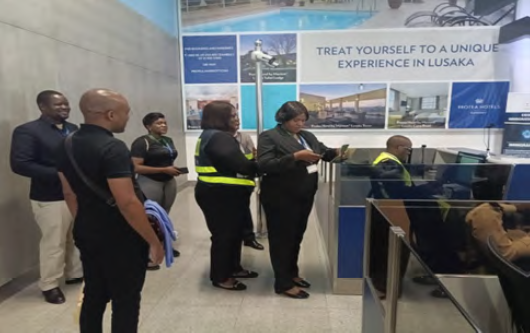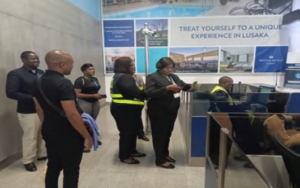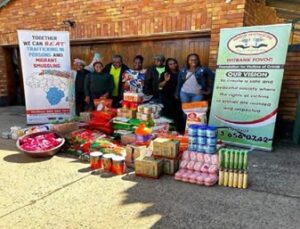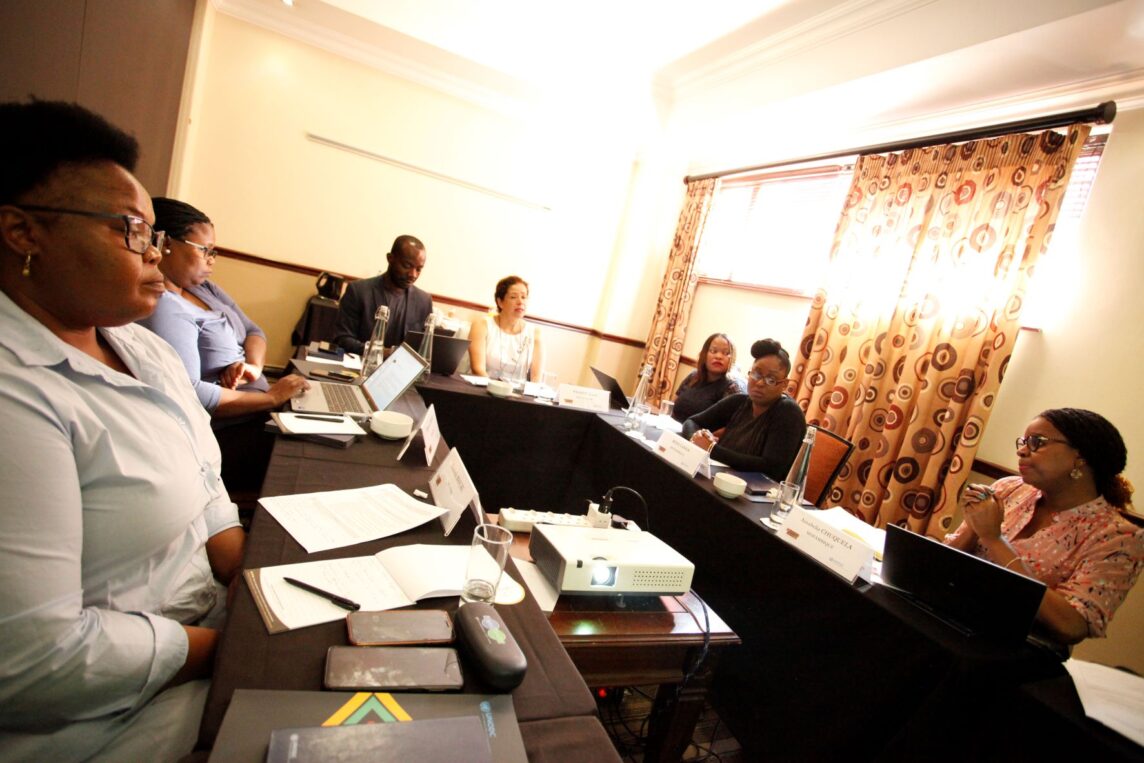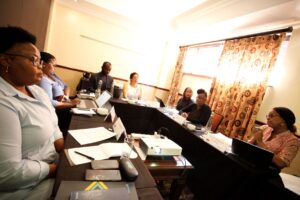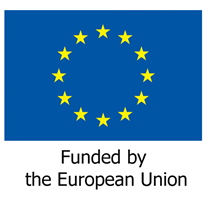The 3rd Project Steering Committee (PSC) Meeting for the project took place in Lusaka, Zambia on the 25th of May 2023. The PSC convenes annually to discuss the progress made in the implementation of project activities, highlights the challenges encountered by the UN implementing agencies and come up with mitigating strategies to ensure smooth collaboration between the RECs and other stakeholders.
COMESA served as the chair and host of the 3rd PSC. As one of the key partners (RECs) in the project, COMESA led the discussions of the PSC which serves as the governing body of the project to, one, provide strategic leadership, two, hold general policy discussions, and overall
guidance on how to move forward in ensuring the mandate of the SAMM project is achieved .
In the deliberations of the PSC, achievements and progress made in delivering the objectives of the project were highlighted by several part- ners and implementing agencies.
“As workers, we bear witness to the work the South African Migration Management Project has advanced.”
—M. KANDUKUTU
Southern African Trade Union Coordination Council (SATUCC)
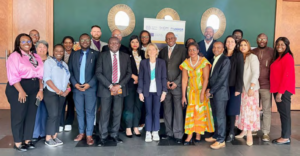
▲ Political Steering Committee Members
The European union also applauded the UN agencies together with its partner RECs for the stellar work done in 2022, emphasising the need to accelerate efforts in delivering as one to improve migration management in the region.
“Migration partnerships is an important pillar of the EU external action. The SAMM Project contributes to this objective by facilitating legal labour migration and by protecting the rights of migrant workers, refugees and victims of trafficking. As the EU, we are pleased to see it moving forward.”
—CLÉMENT BOUTILLIER,
Head of Cooperation, European Union Delegation to Botswana and SADC
 English
English
